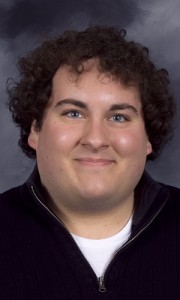The American Railway Engineering and Maintenance-of-Way Association (AREMA) Educational Foundation recently selected the recipients of their 2013 scholarship campaign. Michigan Tech Rail Transportation Program (RTP) students received more awards than any other university with 7 of the 36 scholarships granted to these students:
* Dylan Anderson: Michigan Tech Alumni Scholarship
* Chris Blessing: AREMA Committee 27–Maintenance-of-Way Work Equipment Scholarship
* Anthony Passariello: Michigan Tech Alumni Scholarship
* Sean Pengelly: AREMA Committee 18–Light Density and Short Line Railways Scholarship
* Nicholas Lanoue: REMSA Scholarship
* Hamed Pouryousef: AREMA Educational Foundation Scholarship
* Irfan Rasul: AREMA Committee 30–Ties Scholarship
The AREMA Foundation provides scholarships to engineering students who are specializing in the railway industry and supports other educational and training endeavors that help to ensure the future of the profession.
All scholarship recipients were members of the Railroad Engineering and Activities Club (REAC), a multidisciplinary student organization for those with an interest in rail.
For more information about the club, see REAC.
Published in TechToday
